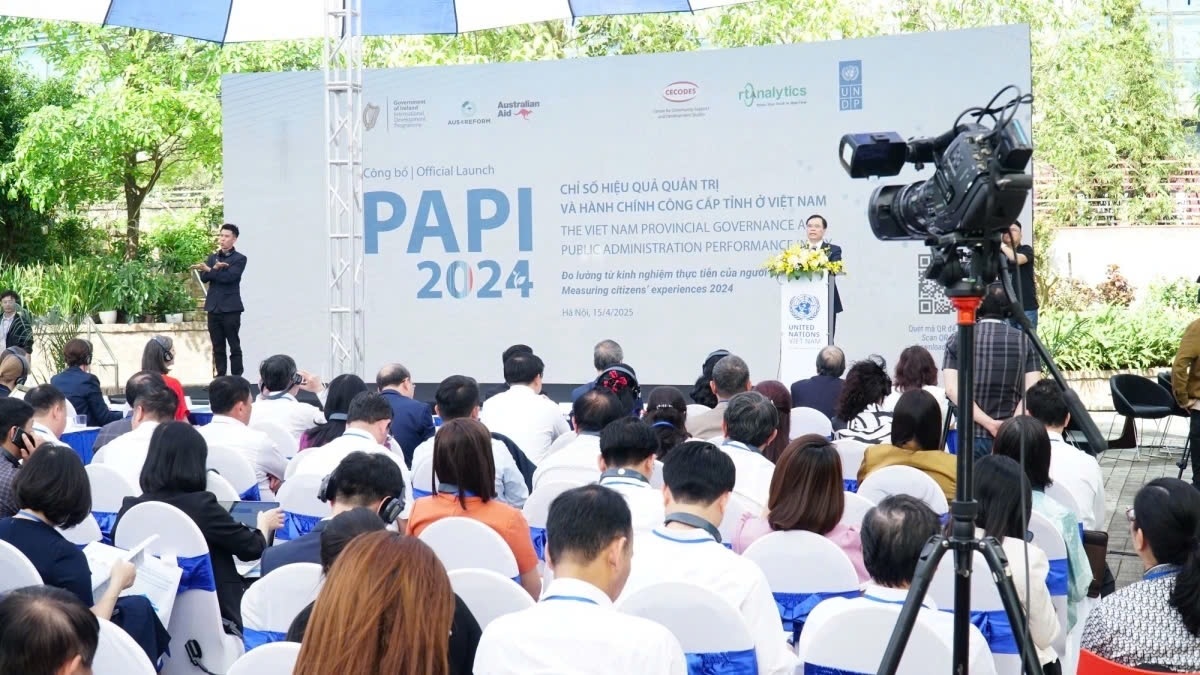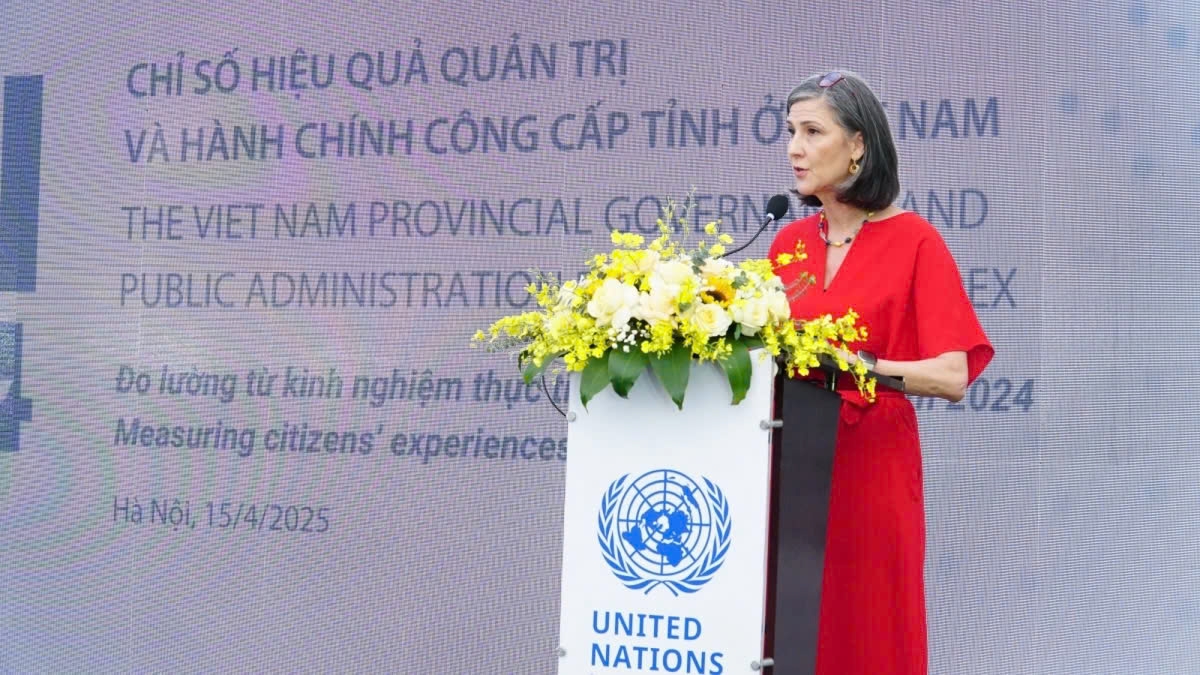Public satisfaction on the rise

The 2024 Provincial Governance and Public Administration Performance Index (PAPI) report reflects feedback from 18,894 randomly selected citizens across the country. The results indicate that citizens rated the performance of local governments higher in 7 out of 8 core PAPI dimensions in 2024 compared to 2023.
Among the eight dimensions, four areas show significant progress, namely transparency in local decision-making, control of corruption in the public sector, environmental governance, and e-governance.
Meanwhile, three dimensions - citizen participation, government accountability toward citizen, and public service delivery - show some improvements. Only one dimension – public administrative procedures - does not exhibit clear progress.
The survey notes an increase in public satisfaction with governance and public administration effectiveness in 2024. Notably, it highlights significant improvements in transparency, corruption control, environmental management, and digital governance. However, it also states that there is still ample room for enhancing overall public governance effectiveness.
Only three of the eight governance areas measured by PAPI - control of corruption in the public sector, accessibility and quality of administrative and public services – have achieved “good” scores from citizens nationwide.
Corruption – top concern
Despite the positive developments, the 2024 PAPI report still reveals that corruption remains the top concern among citizens, with 22.58% of respondents identifying it as a pressing issue that needs to be addressed, up from 17% in 2023.
This notable increase may be due to the prosecution of major corruption cases in 2024 and heightened public attention toward the government’s strong anti-corruption campaign led by the Party and State at the national level.
Interestingly, public demand for stronger anti-corruption efforts contrasts with improvements they observed at the local level. According to the 2024 survey, the proportion of citizens reporting unofficial payments or bribes when accessing administrative or public services declined compared to 2023.
The report therefore recommends that local authorities further enhance transparency in public service delivery, improve law enforcement, and protect whistleblowers, especially after the ongoing administrative restructuring.
According to the report, the proportion of respondents rating their household economic situation as “poor” or “very poor” dropped to 10.2% in 2024, the lowest level since 2019. However, poverty remains the second most concerning issue (after corruption), with 14.2% of respondents citing it as a key issue.
Employment followed closely, with 12.64% of respondents stating it as a priority issue. While Vietnam achieved a GDP growth rate of 7.09% in 2024, economic insecurity, especially among vulnerable population groups, is a significant concern.
In addition, the report highlights the impact of climate-related disasters on citizens’ perceptions of household economic conditions. Findings from the PAPI 2024 survey show that as climate change becomes more evident, a growing number of people feel increasingly vulnerable, with nearly 40% of respondents reporting that their family or community have been directly affected by extreme weather events over the past year.
Toward people-centered public governance

At the PAPI 2024 Report launch conference, Assoc. Prof. Dr. Duong Trung Y, vice president of the Ho Chi Minh National Academy of Politics, emphasised that the PAPI survey results provide a valuable data source for governments to review the performance of their administrative systems and the quality of public services, thereby enabling them to build policies and action plans to improve overall governance efficiency.
Meanwhile, the Resident Representative of the United Nations Development Program (UNDP) in Vietnam, Ramla Khalidi, highlighted the positive results in governance performance across most areas covered by the 2024 PAPI survey. She praised Vietnam’s deep institutional and administrative reforms, which are expected to usher in a new era of effective and agile governance that quickly responds to the changing needs of citizens.
These findings outline an evidence-based roadmap toward people-centered public governance, ensuring that current and future institutional reforms will deliver tangible benefits for all Vietnamese citizens,” she emphasised.
PAPI is the result of a collaborative research initiative between the Centre for Community Support Development Studies (CECODES) under the Vietnam Union of Science and Technology Associations (VUSTA), the Real-Time Analytics (RTA) Company, and the United Nations Development Program in Vietnam.
Minh Tuan





